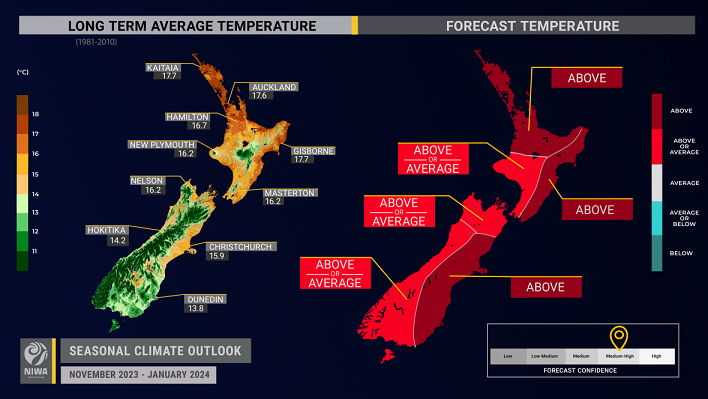Efficient use of water now, could save
Alexia Anderson
15 November 2023, 4:45 PM
 Water efficiency is key as summer approaches. PHOTO: Supplied
Water efficiency is key as summer approaches. PHOTO: SuppliedSummer is on its way, a period which can bring the risk of water restrictions and boil water notices to parts of Central Otago.
Over the past couple of years, several towns in the district have suffered the consequences of floods and demand exceeding production.
In January 2021 a flood event prompted a boil water notice in parts of the Maniototo.
The flooding caused high turbidity raw water to enter the Naseby Water Treatment Plant, significantly affecting the treatment process.
A boil water notice is a precautionary notice, aimed to safeguard health when the water supply has potentially been compromised.
Among the reasons people can be required to boil their water is if tests show harmful microorganisms could be in the water, high turbidity in the source of water, or if the water pressure drops due to equipment failure or power outages.
Boil water notices are also issued if repairs on a water main need to be done, if the water source has been flooded, if there is a significant inflow of stormwater, or in situations where special action needs to be taken to protect people’s health.
Conserve water notices have also been issued throughout parts of Central Otago in recent years, which mainly aim to warn people that reserves are low, falling below 65 percent in dry weather, or in wet weather when water is dirty and the water treatment plant is unable to make the usual amount of clean water.
A Central Otago District Council (CODC) Water Services team spokesperson said a conserve water notice aims to avoid a boil water notice.
“It’s usually just a precaution, but sometimes it can be a lot more serious if the drinking water supply has been compromised by an event, or contamination.
“Some of our ground water sources are vulnerable to drought and wet, eg Naseby, and sudden influxes of people during peak holiday times.”
Niwa has this month launched its outlook report for the next three months, which shows Central Otago could expect above or near average temperatures and above normal rainfall.
Strong fronts are also expected to occasionally impact the region, bringing heavy rainfall and a risk of flooding.
As summer nears, people are encouraged to start thinking about their water use, how much they use and why - with the garden being one place they can be more efficient.

Niwa has launched its predicted outlook for the coming few months. IMAGE: Niwa
To support that concept, the CODC has launched a Dry Garden Competition, which will be judged on water efficiency and suitable placement of climate appropriate plant species.
Entries close on January 31, 2024.
For more information email [email protected]
Read more: Water conservation tips.

NEWS





